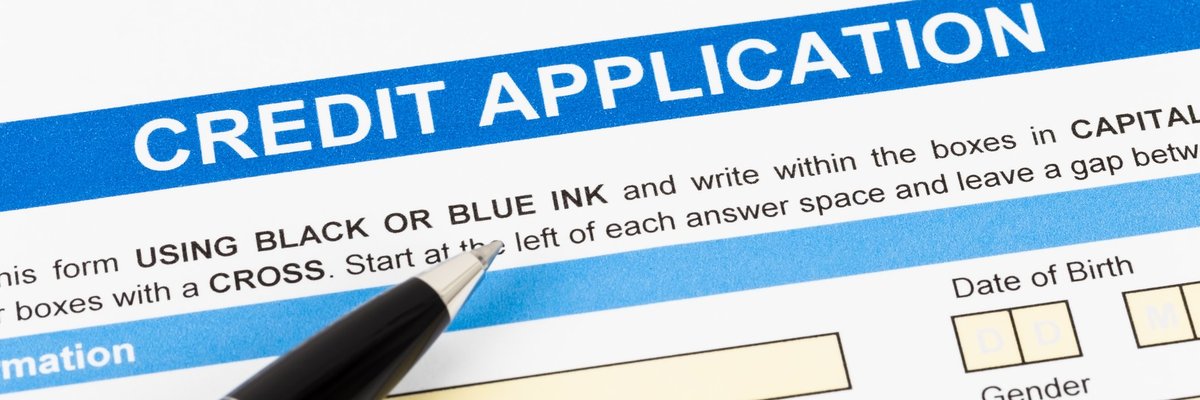5 Things That Will Keep You From Getting a Credit Card
Want a credit card? Make sure you avoid these mistakes.
You've done your research and decided which credit cards you'd like to sign up for. But then the tables turn as it's the card issuer's turn to decide if it wants to work with you. It considers your credit score and income, and scans your credit history for any red flags. Qualification requirements can vary by card and by issuer, but here are a few things that will pretty much universally bar you from getting a credit card.
1. No credit history
Card issuers look at your credit history as a measure of your financial responsibility and they use it to determine whether or not you'll be able to pay back the money you borrow. If you've never borrowed before and don't have a credit history, creditors will be in the dark about how you'll handle the responsibility. Many will deny your application rather than take that gamble.
If you find yourself in this situation, there are a few types of credit cards available that will help you to build up a credit history. Student credit cards are designed for college students. They have low credit limits, but they also have less stringent qualification requirements. If you don't qualify for one of those, you can apply for a secured credit card instead. These require a security deposit equal to your credit limit. If you later decide to close the credit card, your card issuer will refund your deposit, assuming you don't have an outstanding balance.
2. No income
Card issuers will ask about your income when you apply for a credit card. They use this information in part to set your credit limit and to make sure that you have enough money coming in to pay back the money you borrow. Those who cannot demonstrate a consistent source of income will probably get denied because of the increased risk that they will not be able to keep up with their payments.
If you're 21 or older, you can also include your partner's income on your application, which might mean you're able to get a credit card without a job. But it's still better to have your own source of income in case you and your partner split up or your partner loses his or her job.
3. Bad credit
Bad credit indicates that you have not handled your money responsibly in the past. Most card issuers won't work with borrowers who have bad credit because there's too great a risk of the borrower defaulting on the debt. Secured credit cards are open to those with bad credit because if you fail to pay back what you owe, the card issuer can just keep the security deposit. But if you want a rewards credit card, you'll have to work on improving your credit.
Always pay your bills on time and strive to limit yourself to using 30% or less of your credit limit each month. Using more than this tells lenders that you need a lot of credit to finance your lifestyle. Don't close old credit cards unless they charge you an annual fee. They help your average account age, which can improve your credit score.
4. Applying for too many credit cards
Every time you apply for a credit card, the lender does a hard inquiry on your credit report. This drops your score by a few points and it also shows up on your credit report.
Applying for several credit cards within a few months suggests to card issuers that you may have fallen on hard times and need a lot of credit to support your lifestyle. This indicates a higher risk of default, so your application will probably get denied. You can avoid this by choosing the credit cards you want to apply for carefully and not applying for a new credit card more than once every six months.
Credit scoring models do make an exception for rate shopping on loans. Depending on the scoring model, they consider any loan inquiries that take place within a 14- to 45-day period as a single inquiry to account for normal credit shopping behavior. There's no such exception for credit card applications, though.
5. Fraud alert on your credit report
Some people place fraud alerts on their credit reports if they've recently been the victim of identity theft. This doesn't prevent you from opening new credit cards, but it might make it impossible for you to apply online. Fraud alerts tell creditors that they must take extra steps to verify your identity before opening a new credit account in your name. This ensures that you're you and not an identity thief.
If you have a fraud alert on your report, you might have to visit a branch location to complete your application. Removing the fraud alert is also an option. Initial fraud alerts automatically expire after 90 days unless you choose to extend them. You can also contact the credit bureaus at any time to request that they remove the alert. Be prepared to answer identity-verifying questions when you contact the credit bureaus as well.
No one likes being turned down for a credit card, and this can hurt your credit score. You can help yourself by avoiding the five above mistakes
Our Research Expert
We're firm believers in the Golden Rule, which is why editorial opinions are ours alone and have not been previously reviewed, approved, or endorsed by included advertisers. Motley Fool Money does not cover all offers on the market. Motley Fool Money is 100% owned and operated by The Motley Fool. Our knowledgeable team of personal finance editors and analysts are employed by The Motley Fool and held to the same set of publishing standards and editorial integrity while maintaining professional separation from the analysts and editors on other Motley Fool brands. Terms may apply to offers listed on this page.



